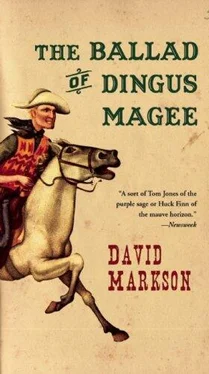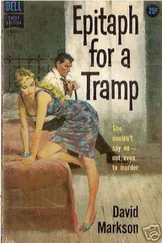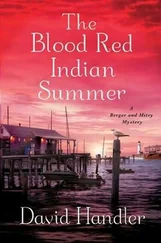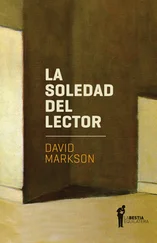He did not go back to Santa Fe immediately. As a matter of fact he stayed away for most of a week, knowing he would do so even as the Comanches mounted up and thundered from the reservation that same night, and so by the time he did return all of the dead had been safely buried, although certain of the larger buildings continued to smoulder. Cousin Redburn Horn himself had taken an arrow in the thigh, and although it was healing without complication the man was more anxious than ever now to return to the East. A cavalry patrol had long since been dispatched to hunt down the unpredictable renegades.
“And where were you?” Drucilla asked him. “Here when you finally might have had a chance to be a hero, you were off moping in the hills someplace.”
“Well, it ain’t my fault if’n I ain’t lucky,” Dingus said. “Anyways, looks to me like being a hero ain’t no more than being in the wrong place at the right time, is all.”
“Not that it matters to me one way or the other, actually,” the girl said then, “since personally I couldn’t care less about these banal Indian disturbances. It’s really quite prosaic, you know.”
“Huh?” Dingus said. “But what about all that there romance, and—”
“Oh, there’s only one sort of truly romantic individual left in the contemporary West, obviously. I’m collecting different cuttings now.”
She showed him a few. So this time it was even worse. “Jesse James?” he groaned. “Billy the Kid? But all they do, they rob things; is that what you mean? And for crying out loud, I heard a feller talking about Jesse one time, knowed him personal, and he told it for a true fact that he’s got granulated eyelids. Now what in thunderation is romantic about a feller blinks all the time?”
“If you don’t know, there’s simply no help for you,” Drucilla said with disdain, clipping a biography of the late James Buder Hickok from an old issue of Harper’s New Monthly Magazine. Which left Dingus no less frustrated than before (the peephole had been filled in during his absence, also). Agonized, he scowled over her new collection until he knew many of the reports by heart. Finally he rode out again.
It took him months to muster the necessary courage. What he had in mind was a stagecoach waystation he had passed once, with a strong box too heavily padlocked not to hold something worth removing. He had to ride for some days, and his initial miscalculation should have been a sign. Because he planned to hole up in a mountain pass a short distance from the station and wait for dark, but when he reached the spot on a cloudless, sweltering midsummer day, it was well before noon. He was forced to perch on a flat rock for the necessary nine hours. When he unbent himself back into the saddle his horse took two sideward steps and fell dead.
“Not that it comes to much difference anyways,” Dingus decided philosophically. “Because how is Harper’s New Magazine or anybody else gonter know what a notorious desperado you are less’n some writer feller happens to walk in and catch you at it?”
The dilemma appeared insoluble. Nor had it altered on the afternoon months later when, quite by chance on a trail near Alamogordo, Dingus happened upon a stagecoach that had been attacked by unquestionably professional outlaws, and recently enough so that one injured horse still thrashed in the harness. Broken baggage was strewn about the roadway. The driving team and their four passengers lay face down in a gully, where they had been lined up and murdered. Dingus was horrified at the spectacle.
So he had just put the injured horse out of its misery, and was preparing to bury the victims, when something else caught his eye. Kicking at an embankment in its efforts to rise, the trapped animal had etched a deep, circular marking with its hoof, very like the letter D. Dingus wet his lips, gazing at it.
There was no sound on the trail. Save for the vultures which hovered ominously above, there was no movement either. A small, sharply pointed twig actually lay at his feet, as if in conspiracy. Dingus was holding his breath. Then, snatching up the twig at last, and with furtive, darting glances about himself, hurriedly but clearly he left his portentous message in the dust: Dingus Billy Magee done this. Beware.
Two weeks after that, in a town called Pendejo where he himself was a total stranger, he overheard gossip about another crime altogether, as yet unsolved. But by then he had been waiting with gleeful impatience to stumble upon just such a situation. The Pendejo sheriff had been shot in the back. “When’d it happen?” Dingus asked casually. “Jest last night sometime,” a waiter told him. Dingus himself had reached the town not an hour before. He nodded sagely. “Might have figured,” he said, “since I passed Dingus Billy Magee on the trail out of here this morning.”
“Dingus whoozy what?”
“Well now, you fellers jest must be behind the times up here, I reckon,” he informed them blandly. “Why, ifn there’s a more disreputable, underhanded, back-shoorin’, poorhouse-robbin’ skunk in the whole New Mex territory, it’d be news to most folks. Yep. What I hear, this Dingus Billy Magee, he cuts the gizzard out’n law officers on sight sometimes jest from plain cantankerousness. That’s Dingus, d-i-n-g-u-s—”
So it took scarcely any time at all after that, and when he started back to Santa Fe again, perhaps three months later, there was already well over two thousand dollars in rewards on his head, and his name was being spelled reasonably also. “Which even Juicy Drucy is gonter have to admit ain’t bad a-tall, for a shaver not even yet nineteen,” he speculated satisfactorily. He had taken to offering physical descriptions of himself on recent occasions also, inventing the red-and-yellow fringed Mexican vest by way of embellishment, and that too had been mentioned in several accounts of his exploits. Shortly before he reached home it occurred to him that he might actually purchase one.
So Drucilla had never heard of it, of the famous garment or of any of the rest, apparently. “Because I never read the newspapers any longer,” she said contemptuously. “Why, no respectable girl would have any interest in violence and bloodshed, which is all they ever print these days, of course.”
Dingus gaped at her. “But all them cuttings you—”
“When one ceases to be a child, one puts aside childish things. I should like to marry a pillar of the community now, a banker perhaps. Yes, indeed, nothing but a banker will do.”
“A what? Well, I’ll be mule-sniffing son of a—”
“Cousin William, please. Your language!”
So he endured that for a week or two and then he asked her how much it would cost to buy a bank, or open one. “Oh, I imagine it might be managed for sixty or eighty thousand dollars,” she informed him, “since I would only be interested in a respectable sort of bank, naturally.”
“Sixty or eighty thousands Dingus screamed. “Lissen, I got four hundred, in a sock I buried one time, and that’s the—”
And then suddenly it came to him. She was in the kitchen, sweeping, and he literally dragged her into the yard. “All right,” he said. “Yes. But wait now. Jest wait, a month or so maybe, because it ain’t gonter be that easy. But there’s got to be the sixty, maybe even more. Because it’s been ten years, at least, that she’s been salting it away, and—”
“Who?” Drucilla said. “What are you—?”
It was Belle Nops. Dingus did not know her except casually, since he had stopped at the bordello only rarely in his wanderings as a trailhand. But he had heard the speculation among her more regular clients often enough, and now his mind began to glow with the possibilities. “Because at a dollar a hump for all them years it’s got to be a unadulterated fortune,” he said. “And on top of that there’s the profits from the drinking and the gambling likewise. And it’s all jest sitting there, in that safe which fellers says is in her office, and which—”
Читать дальше












